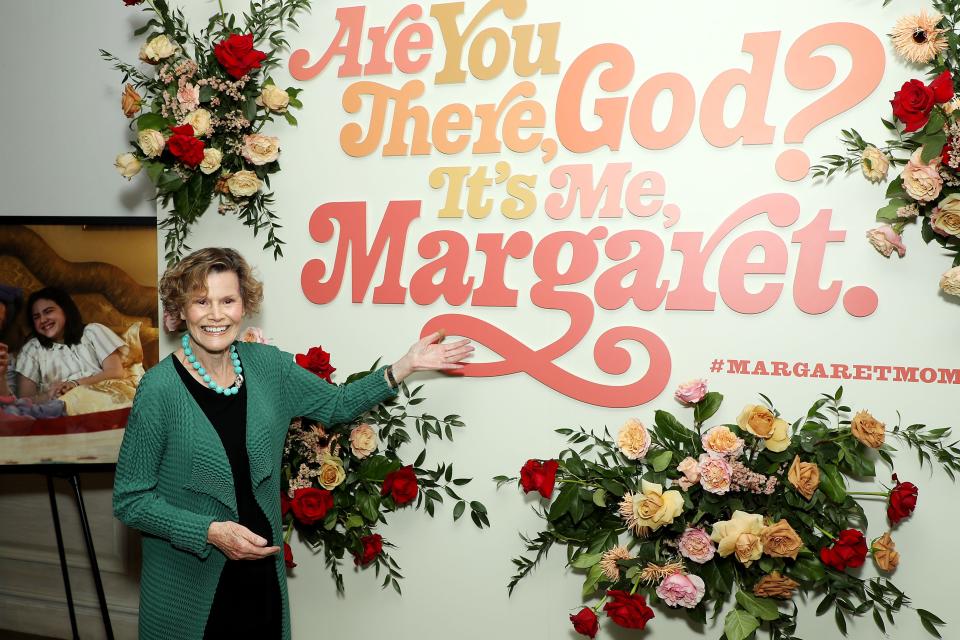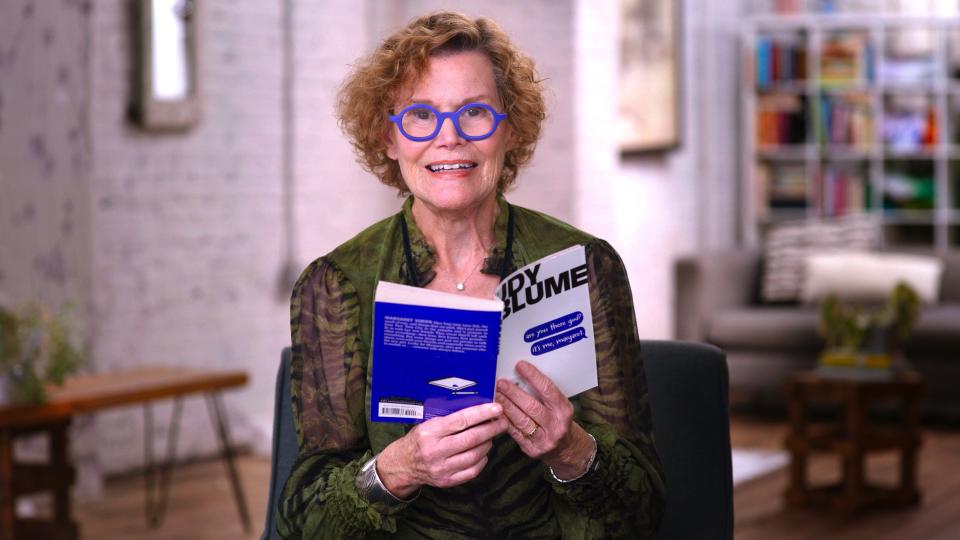Judy Blume, Rachel McAdams talk periods, book bans and 'Are You There God? It's Me, Margaret.'
More than 50 years after her first hit, Judy Blume's writing is more relevant than ever.
As lawmakers call for banning books in schools and limiting access to information about puberty and sex, young people are looking for adults they can trust to give them the answers they're searching for. Enter Blume, 85, who has served as an authority to children with big life questions.
"There's rarely a person I meet when I mention Judy Blume who doesn't (gasp and say), 'Oh, my God, that book' or 'She's had a profound influence on me,' " says Rachel McAdams, who stars in the upcoming film adaptation of "Are You There God? It's Me, Margaret." "It's not just, 'Oh, I love those books.' It's 'It changed my life.' "
Call this the spring of Judy Blume. Two films surrounding the author arrive this month: "Judy Blume Forever," a documentary about her career and influence, is streaming now on Amazon Prime, and a movie adaptation of "Margaret," featuring McAdams and Kathy Bates, hits theaters on April 28.
"I hope they don't say 'too much Judy,' " Blume jokes.
Rachel McAdams on 'Don't Say Period,' why 'Margaret' is still relevant

Set in the 1970s when the novel debuted, "Margaret" closely mirrors the source material: All the scenes about the intrigue of bras, anatomy diagrams and maxi pads remain relevant, those involved with the film say.
"It's not just for girls to feel seen and heard but for boys, too," says McAdams, 44. "It's to normalize something that is so normal. … The idea that the word 'period' might be banned in schools is – I can't wrap my brain around that. Knowledge is power and the more knowledge you have of your body, the more power you have over your body."
The film centers around a young girl (played by 15-year-old Abby Ryder Fortson) full of questions about life, but those questions don't stop coming after puberty ends. The film allows a glimpse into how Margaret's mother (McAdams) and grandmother (Bates) continue to grapple with their places in the world.
"It's about women of all ages and how they can be a support to one another," McAdams says.

Behind the scenes, Blume served as a producer and provided McAdams with the backstory for what her character's life might have been like before the film. And she makes a blink-and-you'll-miss-it cameo with her husband, George Cooper.
"It could have turned out terrible, but it turned out better than I ever could have wished for. I love it," Blume says of the film. "In my lifetime, that I get to see this is almost beyond words for me."
'I'm still here': Why it was time for the 'Judy Blume Forever' documentary
A documentary about her life originally wasn't appealing to Blume, but directors Davina Pardo and Leah Wolchok eventually convinced her.
"I started worrying that when I die, people will start doing this stuff," Blume says. "And it's like, wait – I'm still here. Maybe I should be involved with this now while I can."
'Judy Blume Forever': New documentary explores sexuality, banned books and controversy
Famous faces including Molly Ringwald and Lena Dunham appear to speak about Blume's impact. The filmmakers made a point to include marginalized authors influenced by Blume who have also faced book bans. Blume says she wasn't aware of who would be in the film beforehand but found it "a very nice surprise."
"We knew we wanted to talk to writers like Jason Reynolds and Alex Gino and Jacqueline Woodson: writers who are people of color or queer or trans who write characters who are people of color or trans or queer," says Pardo. "And we also knew we wanted to talk to creators: women who had changed TV shows and starred in movies that change the way girls and women are seen in popular culture. All of them felt like they would not have made what they made without Judy Blume's work."

The documentary explores numerous controversies Blume has faced through the years. While promoting her upcoming films, Blume faced backlash for an interview with the Sunday Times of London in which she voiced support for author J.K. Rowling, who has been criticized for anti-trans comments. Blume said on social media afterward that her words were "taken out of context" and that she "vehemently disagree(s) with anyone who does not fully support equality and acceptance for LGBTQIA+ people."
In the past, she's been criticized for writing on topics some adults would rather children not read about, including puberty, masturbation and sex.
"It is crazy. Of course, it's not controversial. I was talking to my friends in the ’50s about periods endlessly," Blume says. "It's just never been a controversial thing for me."
Of lawmakers who are calling to ban books from schools, Blume, who fought similar calls in the ’80s, says they're "fearful" and "want to control what our kids know, what our kids think, what our kids can question."
"You can't do that," she adds. "But somehow, we're right back there where they think, 'Oh, if we can just get these books out of their schools and libraries, they won't know it or talk about it,' which is totally not true.' "
Variety's Power of Women event: Judy Blume criticizes book bans
From the generations before who grew up with Blume's stories to new ones who might be introduced to her through the big screen, stories like "Margaret" assure they aren't alone.
"People can just give the book to their kids and be like, 'Hey, this isn't such a scary thing. This is going to happen to you but, like, it's not so scary,' " says Fortson.
Says Blume: "A lot of people ask me about my legacy, and I don't really know what that is and I don't know that I want to think about that. I think that's for other people to say. I'm doing this now while I'm here, I'm enjoying it. So I don't know – what is the legacy? Having touched lives: maybe that's the legacy."
Book bans are on the rise: What are the most banned books and why?
This article originally appeared on USA TODAY: Rachel McAdams, Judy Blume clap back on period shaming, book bans
Solve the daily Crossword

